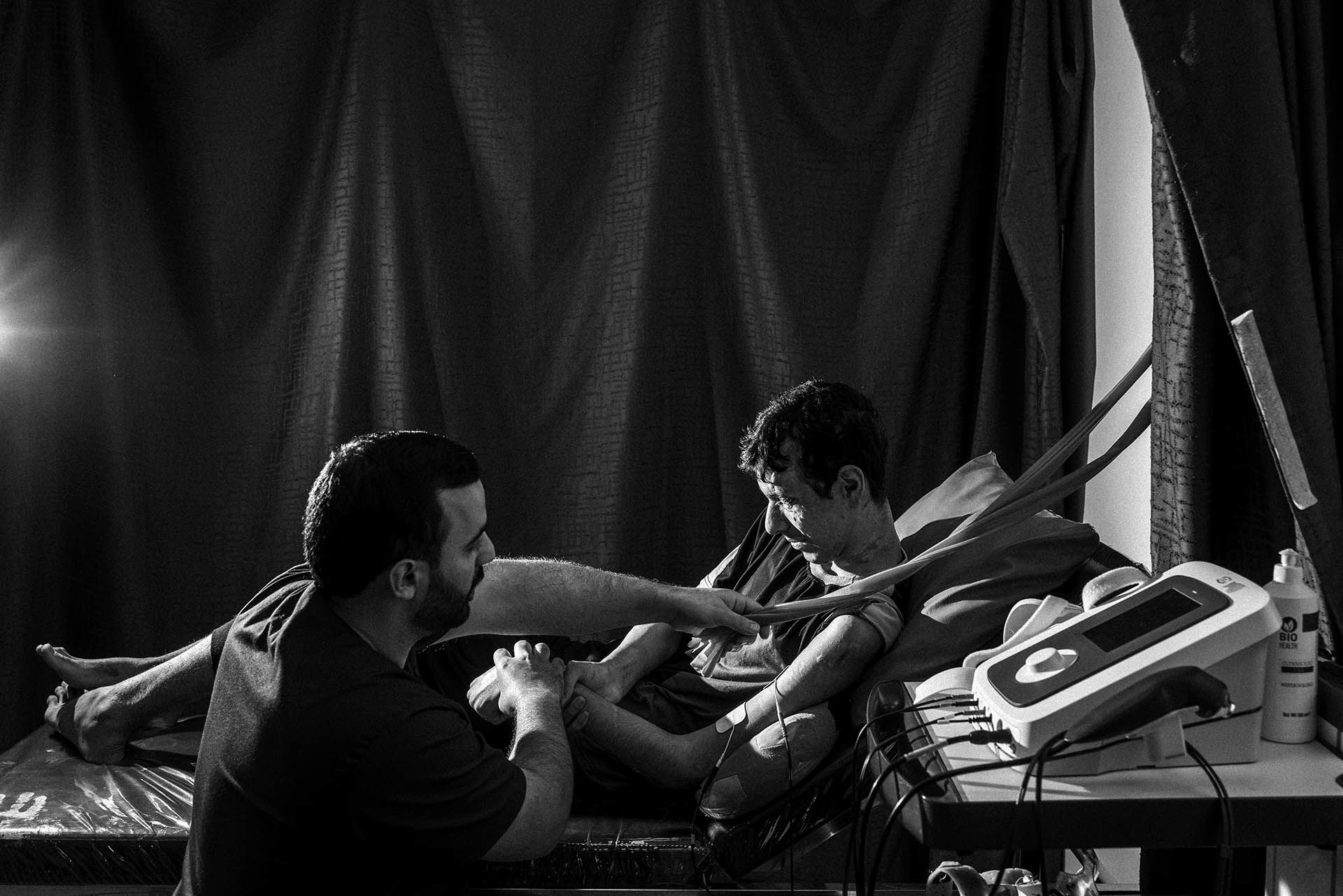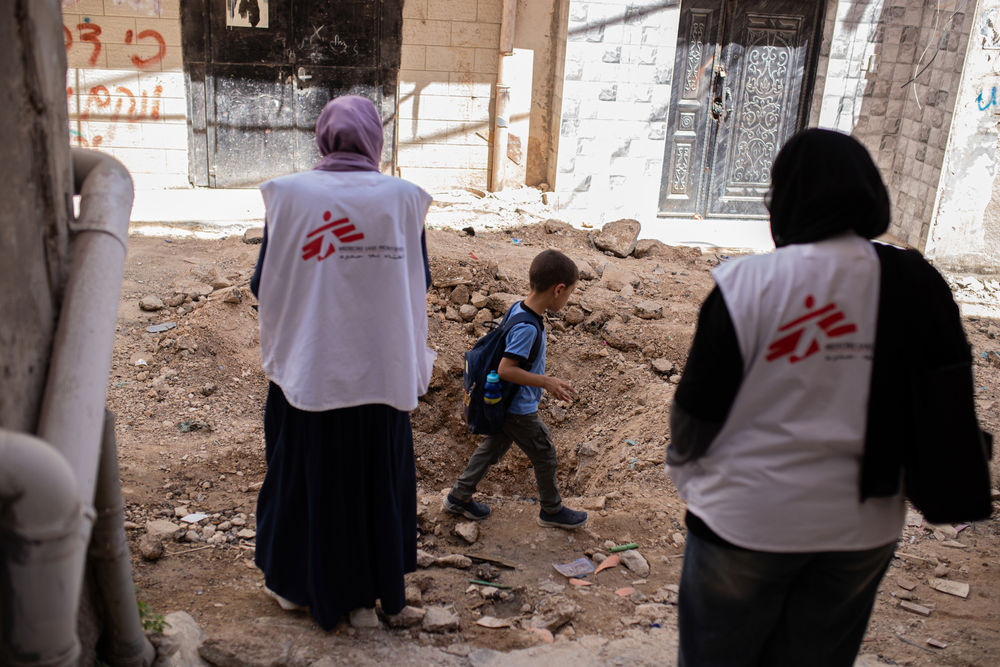Médecins Sans Frontières (MSF) calls on the Israeli authorities to ensure medical evacuations for Palestinians in need of specialised medical care, including their caregivers, and for other states to receive and facilitate treatment outside of Gaza, while ensuring that all patients and their caregivers are guaranteed safe, voluntary and dignified return to Gaza.
At the MSF reconstructive surgery hospital in Amman, Jordan, our teams are treating the few Gazan children we have managed to transfer for rehabilitation, once they had been first evacuated to Egypt.
Our mental health teams treating patients at the Amman hospital have noted that before 7 October, Palestinians from Gaza already suffered from depression and frustration, often related to unemployment, poverty, and high drug addiction rates, as well as disabilities and amputations caused by previous wars. However, since 7 October the mental health of Gazans has deteriorated dramatically. We hear from Dr Ahmad Mahmoud Al Salem, MSF psychiatrist, about the mental health symptoms of Gazan children at the hospital and the support our teams are providing to improve their health.
A lot of patients coming from Gaza to the Amman hospital are experiencing not only post-traumatic stress disorder (PTSD), but even acute stress syndrome. Many young Palestinians have witnessed the destruction of their homes, the killing of their siblings, and some have even suffered life-changing injuries. But on top of that, they are constantly hearing about the loss of more family members and friends.
This is not a normal trauma. This is a huge, tormenting catastrophe, so psychologically their minds are unable to bear all this stress. These patients usually develop something that we call acute stress syndrome. Acute stress syndrome means that the patients usually have a lot of nightmares and a lot of flashbacks, as well as low mood, insomnia and avoidance of the whole traumatic memory.
If acute stress disorder stays with the patient for more than a month, then this becomes PTSD. But if a patient with PTSD keeps receiving bad news from Gaza that many others of his family members have been killed, then he develops a new acute stress disorder or a new grief, so it becomes a complex trauma. It's not one trauma, it's a sequence of traumas.”
First, we have to diagnose the patient. If the patient has depression, anxiety or addiction, then we go through medications and cognitive behavioural therapy. But if the patient is suffering from PTSD, we have to go for medications and EMDR, which is eye movement desensitisation reprocessing, as well as supportive psychotherapy.
In general, when a traumatising event happens the brain does not only save the scene it saves the emotion with the scene. So, when we want to treat any trauma related to a psychological problem, we have to try as much as possible to disconnect the misery from the memory. For example, if someone was burnt and he remembers the kerosene and the fire on his arm, he will have memory of pain but also the memory of the misery that follows, because he feels that his arm will never be normal again.
With EMDR, the aim is to disconnect the memory with the sadness, and to give some hope to the patient, and direct him to once again experience pleasure in the right moment by detaching the past from the present.
The aim is to first encourage the patient to experience reality here and now, and secondly to disconnect misery and pain from the memory.
Adolescents can suffer real misery, as they are just starting to form their personality and their identity. They are beginning to understand their place in the world and they asking themselves, will I be productive one day? Will I be attractive? Will I be able to earn money?
Adolescent patients who have suffered horrific, life-changing wounds, will need long-term psychotherapy, as they don't only need help to get through the bad memories and traumas, but they need to be introduced to a new and daunting life, where they might not feel accepted.
Teenagers are forming their identity, so in general, if they have had their limb amputated or their face burned, then the meaning of their independence becomes crushed. They lose their self-esteem, and their identity becomes threatened and hurt. And their feeling of being wanted becomes hurt.
These kids need support to rebuild their self-worth and self-esteem. We try to work with them to empower them through occupational therapy and by showing them that they can grow and recover. But it takes time.
For someone who is younger, around 10 years old or less, as long as their parents are resilient, they can get through it more easily than someone who is in his teens or someone who is old enough to understand what has happened.
These patients need comprehensive and long-term therapy. Here at the MSF hospital in Amman we work with the patients through a myriad of methods, including one-to-one therapy, educational activities, and in more severe cases through psychiatry and medication. The goal is to support these kids so that they can love themselves and love life again, but they will need this psychotherapy for years to come to support them and to help alleviate the psychological effect of the traumatising event that they have experienced.
*As of 17 August 2024



